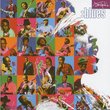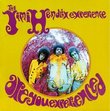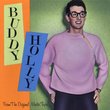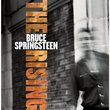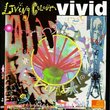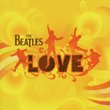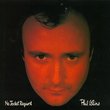| All Artists: Chicago Title: VI Members Wishing: 2 Total Copies: 0 Label: Chicago Records Original Release Date: 1/1/1980 Re-Release Date: 2/28/1995 Album Type: Original recording reissued Genres: Pop, Rock, Classic Rock Styles: Soft Rock, Oldies, Album-Oriented Rock (AOR) Number of Discs: 1 SwapaCD Credits: 1 UPCs: 074643240048, 090204775224, 703404300621, 703404300645, 074643110228 |
Search - Chicago :: VI
 | Chicago VI Genres: Pop, Rock, Classic Rock
Expanded & remastered. This album shows the emergence of Chicago's more pop-oriented style, and features the hit singles 'Just You 'N' Me' and 'Feelin' Stronger Every Day' with 8 more original tracks, plus the bonus... more » |
Larger Image |
CD DetailsSynopsis
Album Description Expanded & remastered. This album shows the emergence of Chicago's more pop-oriented style, and features the hit singles 'Just You 'N' Me' and 'Feelin' Stronger Every Day' with 8 more original tracks, plus the bonus tracks 'Tired Of Being Alone' (with a Al Green) & 'Beyond All Our Sorrows' (Terry Kath Demo). 2002. Similarly Requested CDs
|
CD ReviewsChicago's Most Underrated Album Odysseus | Virginia, USA | 11/02/2005 (4 out of 5 stars) "The period during which Chicago released their first eleven albums, the Terry Kath era, is generally acknowledged to be their creative zenith. For comparison purposes, I will leave out three of these albums: IV (the live album of performances of previously released songs), IX (their first greatest hits album), and XI (with which I am less familiar.) The remaining eight albums can be grouped thus: The Sprawling Double Album Masterpieces: CTA, II, and VII. The Very Good Albums: V, VI, and X. The Inconsistent Efforts: III and VIII. As brilliant as is Chicago's recording history, they never put out a perfect record. Each of CTA, II, and VII contains far too much landmark material to have been confined to a single LP, but none of the three is without its dry stretches (sides four on CTA and II, and side one on VII.) But each of these double LPs are without doubt Chicago's greatest achievements, next to which the other Chicago records suffer by comparison. Those are the discs on which Chicago dismissed the boundaries of popular music, packing every manner of harmonic and rhythmic experimentation successfully into structures that didn't easily condense for radio play. The fifth and sixth albums are commonly described as the ones on which Chicago abandoned the upper reaches of their jazz-rock experimentation, pursuing more digestible, simpler pop tunes. While it's true that each of the fifth and sixth records is more concise and pop-crafted than are the double-album magnum opera, they are far deeper than this description credits. Chicago VI opens in startling fashion, with Robert Lamm's gorgeous but bitter "Critic's Choice," consisting only of Lamm's voice and piano. This establishes the album's mood. It's tuneful, but far more introspective and haunting than much of Chicago's previous work, especially than their traditional up-tempo openers. Throughout VI, Lamm pours his heart out, expressing loneliness and disappointment in his California experience (an sensitive contrast with the amused cynicism that Steely Dan expressed on the same subject.) The song that originally opened the second side, "Something in this City Changes People," is well reputed for its graceful three-part harmony, but for this listener, the musing, brooding opening, Lamm alone on the piano, is when it inhabits its deepest, most poignant place. Lamm is not, on this album, about being a hit-maker, but rather about venting a backlog of emotion. James Pankow's contributions to VI include the two powerhouse hits, "Just You N' Me," and "Feelin' Stronger Every Day" (the latter a collaboration with Pete Cetera.) Great as these pieces are, for my money it's the lesser-known pieces that make VI one of Chicago's best records. Lamm and Pankow each contributed terrific up-tempo pieces in addition to the pieces cited above: Lamm's "Darlin' Dear" and Pankow's "What's This World Coming To." Each is irresistibly funky and good-humored. If I had to pick a single Chicago cut to play for someone who had never heard the band, I would seriously consider "What's This World Comin' To." With a single Chicago cut, you usually have to choose between Terry Kath's vocals or Pete Cetera's. "This World" by contrast brings all of the band's great elements together. Kath, Cetera and Lamm all sing their lungs out, and the whole band stretches out together with a furious power. Your adrenaline will be pumping by the gallon by the end of the cut. Chicago VI's first side is one of the best they ever laid down. The second side doesn't hold to the same standard, but it's a ridiculously high standard. This edition of Chicago VI contains two bonus tracks. They are interesting, worthy additions, but not the seamless products that are many of the other cuts. Chicago band members have reminisced about the difficulty of recording this album at high-altitude, with shortness of breath, and general disorientation. If that's true, they hid it well. The horns have rarely sounded better than they do here, and the same is true for the vocals. Aficionados should listen to and study CTA, II, and VII before this disc. But for anyone who just wants a great single Chicago disc, this one should be strongly considered. I would buy it even before its biting, well-regarded predecessor, V. Chicago VI is one of their very best." Simply Stated, Great Stuff Bill Fleck | Wurtsboro, NY USA | 08/28/2002 (4 out of 5 stars) "When I heard Rhino Records was planning to release the remastered Chicago catalogue, I was certainly pleased since the band itself seemed intent upon putting out only basic versions of their first 14 albums. So far, the Rhino collection (CTA, II, III, V) has been nothing short of excellent.CHICAGO VI is no exception. I'll grant that the sound quality is not significantly improved over the Columbia originals--proof positive of Jim Guercio's very modern production techniques. But the liner notes and the bonus tracks here are worth the 12 bucks you'll pay and then some.The gold is an added Terry Kath demo, a tune he was working on called BEYOND ALL OUR SORROWS. It's just piano and Kath vocals, and though it's not quite in finished form, it's an absolutely powerful and haunting performance ("He could've been a monster as a solo artist," Guercio has said). For Chicago fans, tracks like this are the equivilant of the Holy Grail.Good, too, is a live version of Al Green's TIRED OF BEING ALONE featuring Al himself. The tight arrangement and the afterglow chit-chat hearken back to I DON'T WANT YOUR MONEY on III.VI itself, of course, features two classics: JUST YOU N' ME and FEELIN' STRONGER EVERY DAY. Strong, too, are Kath's JENNY and the Lamm tune SOMETHING IN THIS CITY CHANGES PEOPLE. The band has fun with loose rockers like DARLIN' DEAR and WHAT'S THIS WORLD COMIN' TO? In fact, only Cetera's IN TERMS OF TWO and Lamm's HOLLYWOOD ring the dud bell.With these excellent reissues behind them, Chicago fans can only be happily anticipating what Rhino will do next." A CLASSIC! Phineas J. Buttplug | Woodside, NY United States | 09/07/2000 (5 out of 5 stars) "I don't understand all of the carping about "VI". This is by far the finest single album Chicago ever released. It blends styles so perfectly and honestly. From the horn-free "Critic's Choice" to the explosive "Feeling Stronger Every Day", this is one of the few Chicago albums that hold up and sound as fresh as they did in 1973.It is also one of the few Chicago albums in which I like each and every song and can actually listen to all the way through. This is a must for all Chicago fans.Does anyone notice that James Pankow actually wrote most of the early hits? Too bad he wasn't able to contribute more hits to the catalog. His contributions began to get less and less with each album. In "VI", he contributes both major hits:Just You N'Me and "Feeling Stronger Every Day" (co-written with Peter Cetera)."
|

 Track Listings (10) - Disc #1
Track Listings (10) - Disc #1